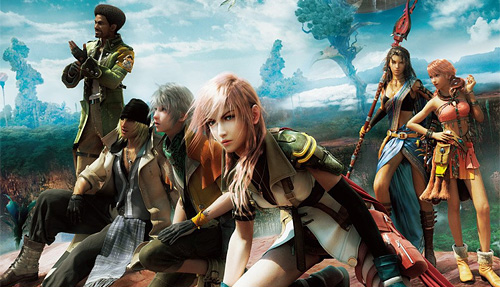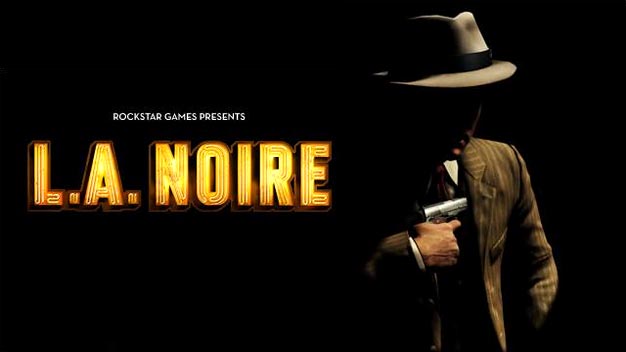We’ve seen the fall of rhythm games, what’s the next one to kick the bucket?

It has been roughly six years since rhythm gaming really hit the market with force, thanks in large part to the runaway success of the Guitar Hero series. Before long, plastic guitars were supplemented with plastic drums, and microphones, and the birth of full band rhythm gaming was upon us. Eventually Harmonix landed on the only logical conclusion for such a genre – the ability to play real instruments to real notation within the game. At the point of reaching the plateau, the genre has been given a death sentence. Activision is halting the Hero series and Harmonix has been sold and downsized, needless to say, things are looking pretty grim for the future of rhythm gaming.

Undoubtedly, the high price of equipment coupled with the fad-style obsession with the genre has played a huge part in why we’ve seen such a rapid downturn in interest. There are only so many band games one can buy before they’ve exhausted their musical interests, as well as their interest in performing (sober) in a plastic instrument band. I have to wonder if this downturn in interest will happen with any other ultra popular genre of games.
2D platformers were killed by 3D ones, and 3D platformers seemed to peter off with, really, only Nintendo carrying the torch well beyond the days of the Nintendo 64. Western RPGs seem to be toppling the archaic JRPG design, and arcade sports games have seemed to go the way of the Dodo as well. Clearly, there is a precedent here, and even something as beloved as the 2D platformer was killed in due time (of course, with games like Super Meat Boy, Donkey Kong Country Returns, Kirby’s Epic Yarn, and New Super Mario Bros. Wii, it’s more like the walking dead at this point).
Only two oversaturated genres really spring to mind at this point: first person shooters and sandbox games. I believe the latter is much more at risk at this point than the former, but I’m not sure either will die in quite the traditional way.


Shooters and Sandbox Games are here to stay... or are they?
First person shooters are extremely interesting to me, as a genre. From the point of Doom’s release until the release of Halo, the series was relegated pretty strictly to the PC. Games like GoldenEye 007 and Perfect Dark made huge strides towards bringing the genre to home consoles, but the popularity and love they brought for the genre didn’t seem to have that lasting ability to make the first person shooter a console mainstay.
Believe it or not, first person shooters have already died once, only to be reborn on consoles with new found popularity. During life on the PC, players experienced games as archaic as Doom and Wolfenstein, but over time were treated to gems like Unreal Tournament 2004, Quake III Arena, and the entirety of the Half Life series. The genre even went through a differentiation period with games like Deus Ex, Thief, and System Shock – all put a twist on the traditional mechanics and made for a unique application of the first person perspective.


Half Life and Quake III Arena reigned king - in another life.
As best as I can tell, Halo was the beginning of the end for PC gamers. Sure, Half Life 2 was released after Halo, as were a few other fantastic shooters, but the popularity of the genre was in the process of declining on that platform. By the time Halo 2 hit the market, things started setting in stone. Not much was on the horizon and Bungie’s shooter had brought an entirely new level of interest in a genre that typically lived and breathed on the PC.
While popular, the first person shooter explosion didn’t happen in the sixth generation. Not until this generation did things really hit fever pitch. Halo, Call of Duty, Killzone, Resistance, Borderlands, Battlefield, Medal of Honor, Bioshock, Left for Dead, and a slew of other imitators have all made their mark on the current generation. Though things have really gone crazy, I think the genre can be saved by what has become an inherent trait.


Halo and Call of Duty, the new school of FPS.
These days, only big budget, high production value games seem to succeed. For the most part, those games are backed by big publishers with ample budget to fund such games. These games also take a significant amount of time to make, due in large part to their grandiose and elaborate settings, and various modes. The result? Fewer games in the genre, all super popular and all well made ventures worthy of a gamer’s time and money. Due to their innate construction, these titles can continue to survive well into future generations. Intuitive pointing devices like the Wii Remote and the PlayStation Move should guarantee greater immersion for future iterations of the popular series in the genre.
Sandbox games seem to be on much shakier ground, from what I can tell. Like the first person shooter, the style of game really got footing last generation, with Grand Theft Auto 3 leading the pack. It was followed up with a variety of sequels, culminating with IV and its two expansions, The Ballad of Gay Tony and The Lost and the Damned, this generation.
Like the first person shooter, these are big budget games that require big popularity to recoup the dollars spent on development. Unlike the first person shooter, their popularity has really been split across last generation and this one equally. Additionally, many games once of varying genres have adopted the sandbox style of design and used it for their game. Perhaps I speak for myself, but sandbox games have worn out their welcome.

Linearity, it's not always a bad thing... ignore the above picture, it's damaging to my case.
I, for one, don’t always want to have a broad scope of choice when playing a game. Being lead down a path (linearity) is not always a bad thing, because it allows developers to create a guided tour through the experience as they envisioned it. I believe that many have realized this after experimenting with the format for their games and have since moved away from the design because it creates for a less engaging experience.
First person shooters have been leading the charge in creating immersive and engrossing stories and experiences. Most of these games are well-directed and are memorable beyond the scope of the single player quest. Furthermore, they have managed to make the online multiplayer more and more engrossing by bringing RPG-style elements into the equation.

Linear, directed experiences are not required for immersion or good storytelling, but they do help. Games like Grand Theft Auto IV tried extremely hard to offer these things, but in my opinion failed pretty miserably when put up against experiences from other genres. Instead, a change in environment, focus, and character provided them with the cinematic experience Rockstar was gunning for. Red Dead Redemption was incredibly well-done and the setting was fresh as were the characters and personalities. No more seedy criminals or back alley debauchery. Beautiful arid landscapes, horse riding, and nights under the stars made for something completely different and extremely memorable.
Sandbox games need some diversity in structure, style, and intent if they plan on continuing to catch the public eye and recoup development dollars. Activision seemed to realize this fact when they canned their upcoming True Crime game. City-based sandbox games don’t have that same luster they once did and, as has been proven, the sandbox design doesn’t work all that well across other genres of games.

With Rockstar continuing work on LA Noire and Grand Theft Auto V, I’ll be interested to see if they perform as well as expected in both sales and in the critic’s eye. My hunch is that both will see relative popularity, but not quite the levels of past Rockstar sandbox games. What this will mean for Rockstar and Take Two as a whole is unclear right now, but let’s just say I’m putting them on my deathwatch list for now.




Comments